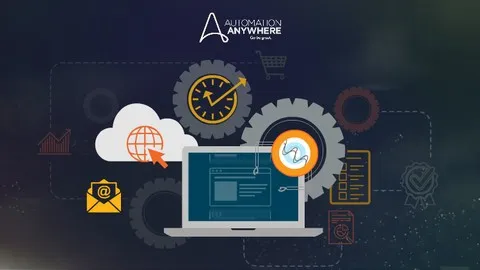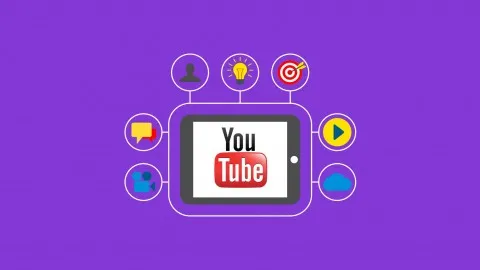
From Idea to Startup 
This course provides the necessary tools to turn an idea into a successful product or service that provides value to customers. It covers the steps from concept to launch, giving entrepreneurs the confidence to bring their ideas to life. ▼
ADVERTISEMENT
Course Feature
![]() Cost:
Cost:
Free
![]() Provider:
Provider:
Coursera
![]() Certificate:
Certificate:
No Information
![]() Language:
Language:
English
![]() Start Date:
Start Date:
Self Paced
Course Overview
❗The content presented here is sourced directly from Coursera platform. For comprehensive course details, including enrollment information, simply click on the 'Go to class' link on our website.
Updated in [March 06th, 2023]
From Idea to Startup is a course that teaches learners how to turn their ideas into real products, services, and processes. Learners will learn how to validate their ideas, test them, and turn them into profitable and sustainable businesses. They will also learn how to identify the major steps and requirements to estimate the potential of an innovative idea. Additionally, learners will learn how to reach creative solutions by iterating on ideas and strategies, integrating feedback, and learning from failures. They will also learn how to apply the 10 entrepreneurial tools in creating a business plan for a new venture. Furthermore, learners will gain insight from interviews with startup entrepreneurs and innovators, and learn how to communicate and sell their innovative ideas successfully.
[Applications]
Upon completing this course, graduates will be able to apply the knowledge and skills they have acquired to create innovative products, services, and processes. They will be able to identify the major steps and requirements to estimate the potential of an innovative idea, reach creative solutions, apply the 10 entrepreneurial tools in creating a business plan for a new venture, apply methods and strategies learned from interviews with startup entrepreneurs and innovators, and communicate and sell innovative ideas successfully.
[Career Paths]
1. Entrepreneur: Entrepreneurs are individuals who create and run their own businesses. They are responsible for developing and executing strategies to grow their businesses, as well as managing the day-to-day operations. Entrepreneurs must be able to identify opportunities, develop innovative solutions, and take calculated risks. As the startup ecosystem continues to grow, the demand for entrepreneurs is increasing.
2. Business Development Manager: Business development managers are responsible for identifying and developing new business opportunities. They must be able to identify potential customers, develop relationships with them, and negotiate deals. They must also be able to analyze market trends and develop strategies to capitalize on them. As the startup ecosystem continues to grow, the demand for business development managers is increasing.
3. Product Manager: Product managers are responsible for developing and managing products from concept to launch. They must be able to identify customer needs, develop product features, and manage the product development process. As the startup ecosystem continues to grow, the demand for product managers is increasing.
4. Venture Capitalist: Venture capitalists are individuals or firms that provide capital to startups in exchange for equity. They must be able to identify promising startups, evaluate their potential, and negotiate deals. As the startup ecosystem continues to grow, the demand for venture capitalists is increasing.
[Education Paths]
Recommended Degree Paths:
1. Bachelor of Science in Entrepreneurship: This degree program provides students with the skills and knowledge needed to develop and launch a successful business. Students learn about business planning, marketing, finance, and operations, as well as the legal and ethical aspects of entrepreneurship. This degree is becoming increasingly popular as more people are looking to start their own businesses.
2. Master of Business Administration (MBA): An MBA is a great way to gain the skills and knowledge needed to become a successful entrepreneur. This degree program focuses on the fundamentals of business, such as accounting, finance, economics, and marketing. Students also learn about the legal and ethical aspects of business, as well as how to develop and manage a successful business.
3. Master of Science in Innovation and Entrepreneurship: This degree program focuses on the development of innovative ideas and strategies for launching a successful business. Students learn about the process of turning an idea into a viable business, as well as the legal and ethical aspects of entrepreneurship. This degree is becoming increasingly popular as more people are looking to start their own businesses.
4. Doctor of Business Administration (DBA): A DBA is a great way to gain the skills and knowledge needed to become a successful entrepreneur. This degree program focuses on the fundamentals of business, such as accounting, finance, economics, and marketing. Students also learn about the legal and ethical aspects of business, as well as how to develop and manage a successful business. Additionally, students learn about the latest trends in innovation and entrepreneurship, and how to apply them to their own businesses.
Pros & Cons

Nice professor who presents research and practice.

Hands-on assignments.

Toolbox allows direct implementation.

Grading system needs to be updated.

Course is too "zoomed out".

Little honesty in assignments.
Course Provider

Provider Coursera's Stats at AZClass
Discussion and Reviews
0.0 (Based on 0 reviews)
Explore Similar Online Courses

Beginners guide to RPA - Automation Anywhere

Free YouTube Marketing Tutorial - YouTube Marketing: Video Marketing Made Easy

Python for Informatics: Exploring Information

Social Network Analysis

Introduction to Systematic Review and Meta-Analysis

The Analytics Edge

DCO042 - Python For Informatics

Causal Diagrams: Draw Your Assumptions Before Your Conclusions

Whole genome sequencing of bacterial genomes - tools and applications

Amazon FBA Product Launch - Giveaway and PPC Campaigns

Launch Strategy: 5 Steps to Capstone Experience

Legal Tech & Startups
 Related Categories
Related Categories
 Popular Providers
Popular Providers
Quiz
 Submitted Sucessfully
Submitted Sucessfully
1. What is the main goal of this course?
2. What are the 10 entrepreneurial tools mentioned in this course?
3. What is the main focus of the interviews with startup entrepreneurs and innovators?
4. What are the 10 entrepreneurial tools?
Correct Answer: Business Model Canvas, Lean Canvas, SWOT Analysis, PEST Analysis, Value Proposition Canvas, Design Thinking, Customer Development, Minimum Viable Product, Pitch Deck, and Financial Modeling.


Start your review of From Idea to Startup